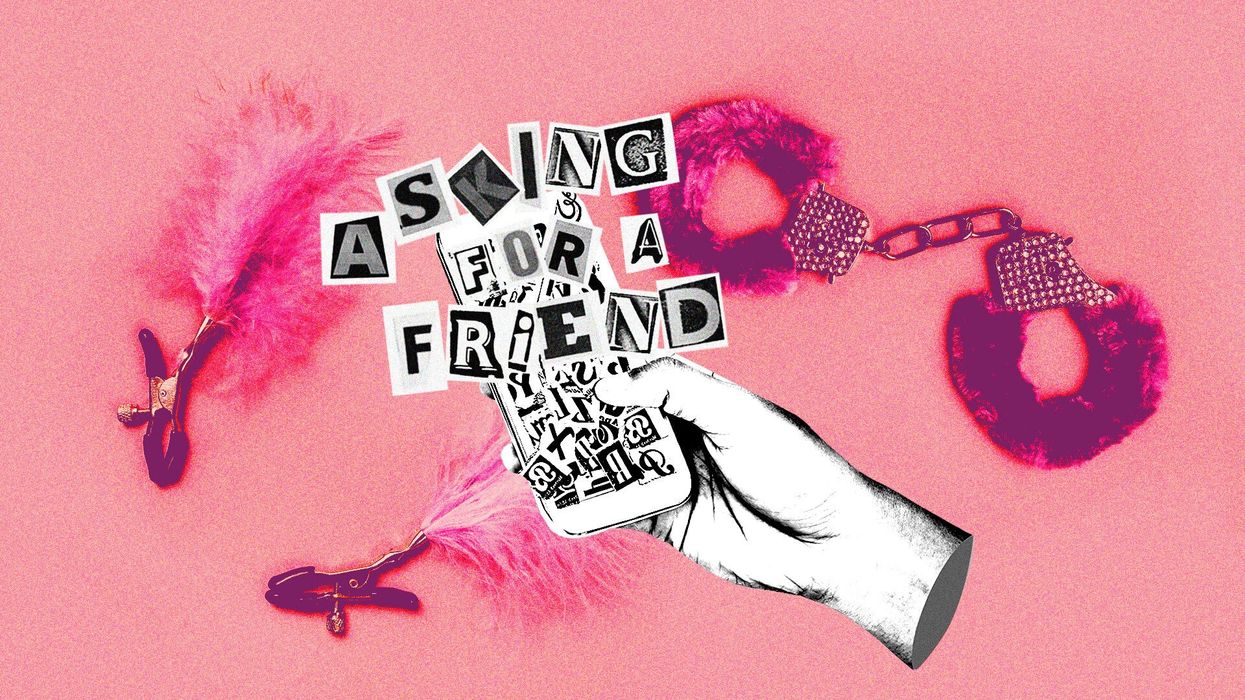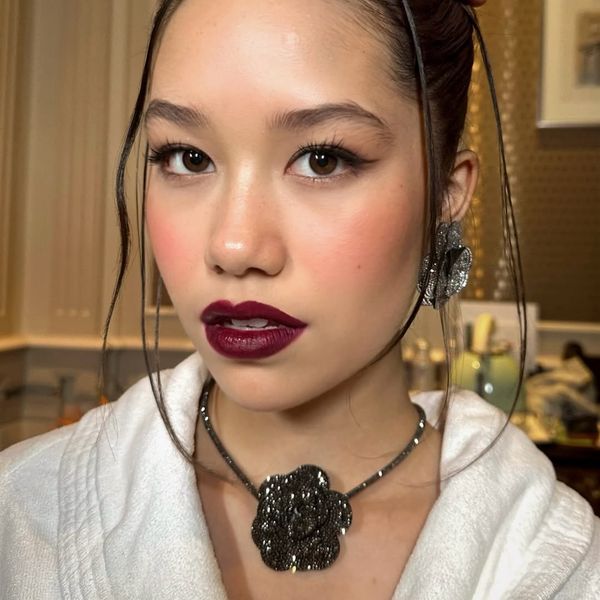Why Is My Boyfriend Afraid of Sex Toys?
Is it the toy or his insecurities? Let's unpack it.

Dear Coveteur,
I’m a 29-year-old woman, and I’ve been with my boyfriend for the last three years. We’ve been living together for almost a year, and despite the predictable ups and downs of cohabitating, our relationship feels very solid. I am happy with our existing sex life, but before living together, I used to use sex toys a lot more on my own. Now that we’re living together, I’d love to be able to incorporate them into our sex life. I’m afraid to bring this up with my boyfriend since, in the past, he’s expressed discomfort and insecurity at the mention of sex toys. I think he’s afraid that using toys is a sign that he’s deficient or unsatisfying in bed, but I sincerely feel like this would be a great way to add some fun in the bedroom. What is the best way to approach this conversation with my partner? Is there any way to make him see that this isn’t a critique of his sexual skills?
Thanks, Coveteur!
M.
Since prehistoric homosapiens first picked up a rock and fashioned it into a tool, humans have made and used sex toys. With archeological proof of dildos dating back 28,000 years, it’s hard to believe that conversations around sex toys evolved much since then. If we zoom out to just pure statistical data, 82 percent of American women reported owning a sex toy, and 50 percent of American men admit to using a sex toy in the past. Also, let’s be honest, in cis-heterosexual couples, the pleasure gap is very real. Studies have found that 39 percent of women regularly orgasm during sex, compared to 91 percent of men. While most cis, heterosexual men think that penetration is the be-all, end-all of sexual pleasure for women, 81.6 percent of women don’t orgasm from penetration alone. With the pleasure gap in mind, you are entitled to your orgasm through any means necessary—and that most certainly includes toys.
As someone whose friends just about Clockwork Orange-style forced me to watch And Just Like That, there have been several moments in the show—both clumsy and vaguely insightful—that address this very topic. In episode five of AJLT’s season two, series regular Seema has a one-night stand with a man who uses a penis pump but gets upset when she finishes herself off with a vibrator. He is dismissive and irritated while, just moments earlier, she accepted his need for mechanical assistance. In this case, double standards—especially when it comes to female pleasure and men calling into question their sexual performance—are front-loading this sexual tension. If we rewind to episode one of season two, Miranda has a clumsy encounter with her first strap-on. She untangles the harness and exclaims, “Is this a strap-on or a cat toy?” In the background, her partner Che talks to Carrie on the phone about Carrie’s workplace romance and says, “Sometimes relationships are just about sex.” The camera cuts to Miranda, who suddenly looks crestfallen. She removes the harness and decides to book a reservation on OpenTable.
So what is so resonant about these scenes? In both cases, the source of conflict was not the toy itself but rather the insecurities they inspired. Although Seema was patient with the man’s penis pump, he felt emasculated that she needed assistance to finish. Miranda, who was fussy but wholly comfortable untangling this sex toy in front of her partner, felt insecure at the suggestion that their relationship might be more transactional than she thought. What was fun and experimental feels too loaded. As much of a narrative trainwreck as AJLT can be, these felt like real moments.
In your situation, it sounds like your boyfriend feels similarly insecure about using toys. Where is this fear coming from? Ideals of masculinity? Body shame? Fears around sexual performance? There may be a lot of ego-related obstacles that are getting in the way of honest conversation. At the end of the day, a sexual relationship needs a few core things to survive: trust, communication, and playfulness. When two people aren’t on the same page, one or both of you begin to ruminate. If you go too long without open communication, your insecurities get the best of you, and the conversation becomes too unwieldy to unpack.
Sex is terrifying to talk about. It’s a minefield of topics most people—and sorry to say it, most straight men—are really bad at talking about. The first step in this process is normalizing conversations about sex with your partner. Don’t just wait around for a problem; talk about everything. Talk about it when it’s going well and open a dialogue about sex in and out of the bedroom. If sex isn’t a part of your normal conversational repertoire, find new ways to integrate it–discuss sex scenes in the movies and shows you’re watching, use that as a way to discuss your sexual fantasies openly, try to incorporate more physical intimacy and flirtatious language in your everyday life–eventually, this will begin to build a positive rapport around the subject. Once the conversation feels collaborative and consistent over time, it gets easier to breach new topics like experimenting with toys. Over time, this builds confidence and trust, so there’s a foundation to build on when you encounter more sensitive topics.
When you feel ready to bring up a conversation around toys, emphasize that this is an experience for both of you. It’s an arena to experiment, play, and discover new things for both parties. You can make it clear that this will expand your sexual menu, not take something off. Many men feel threatened by phallic sex toys, but not all toys are dildos—there are vibrators, couples toys (some with remote controls), and props that are specifically designed for more than one person. It is also important to emphasize that while some products can double as solo toys, it’s a different experience to have your partner use them with you. It extends the intimacy you share, not diminish it. Once you two are on the same page about your desires, insecurities, and goals in the bedroom, the toys themselves won’t be loaded with so much unspoken significance.
If you would like to submit your own question to “Asking for a Friend” please send your submissions to editors@thecoveteur.com.




